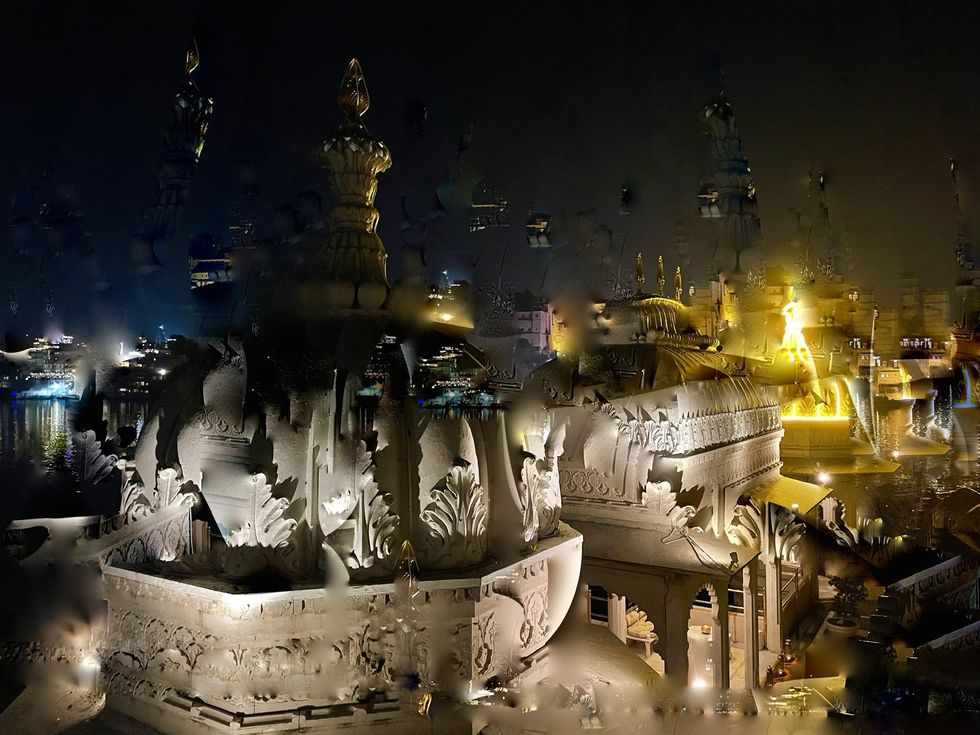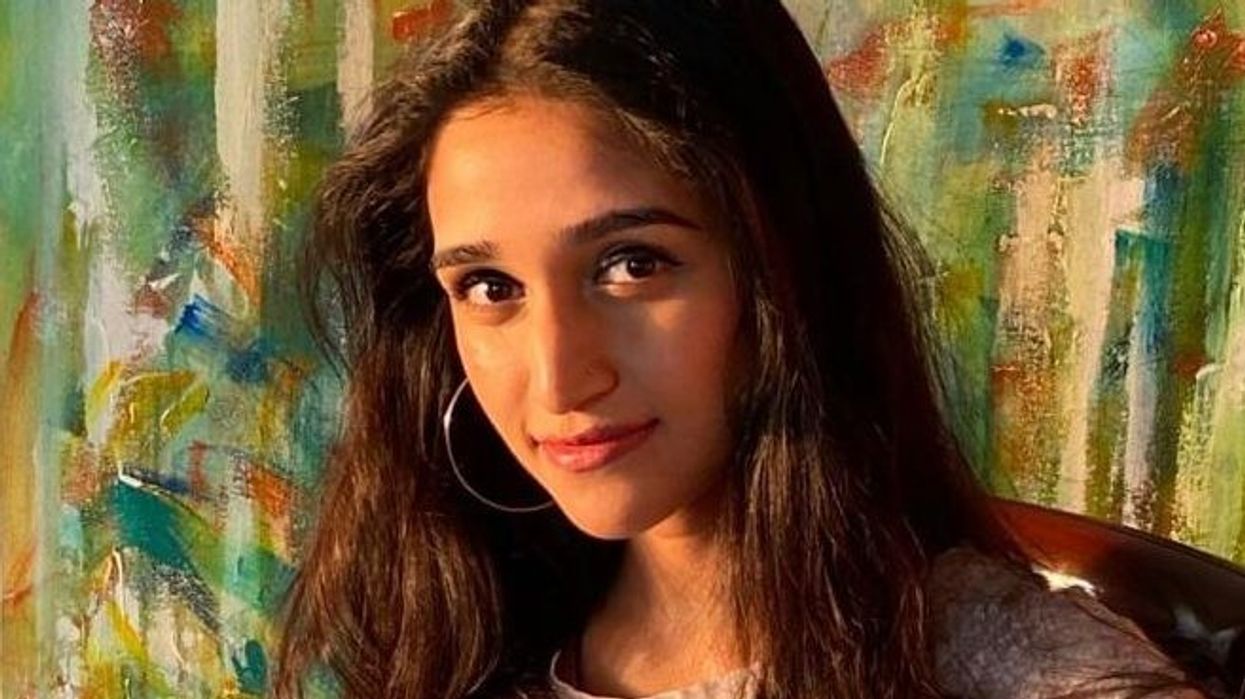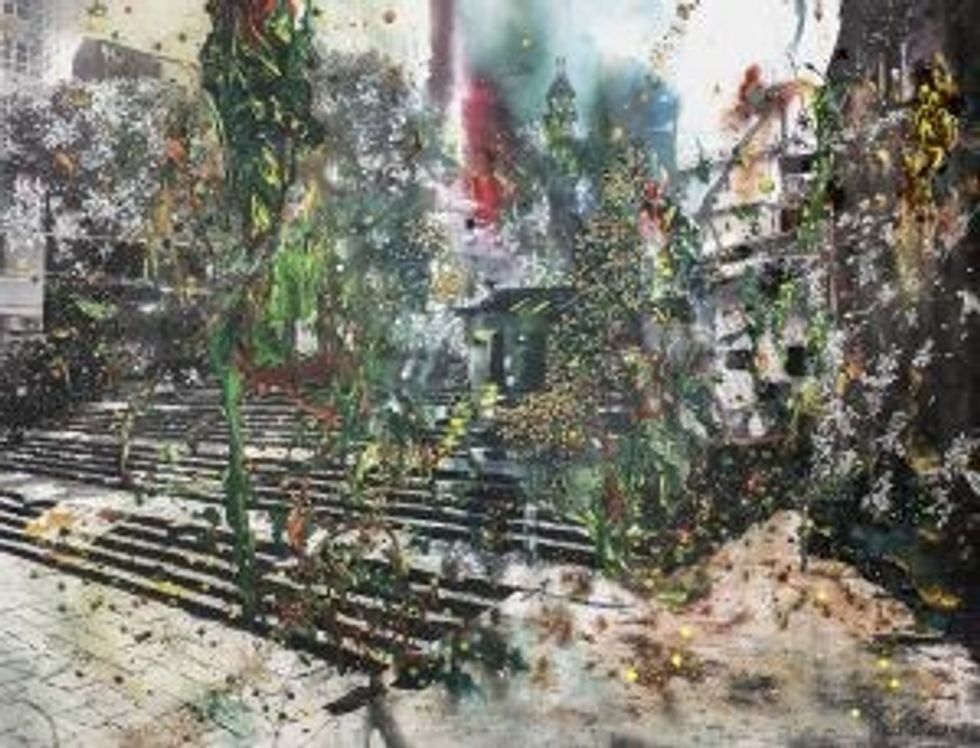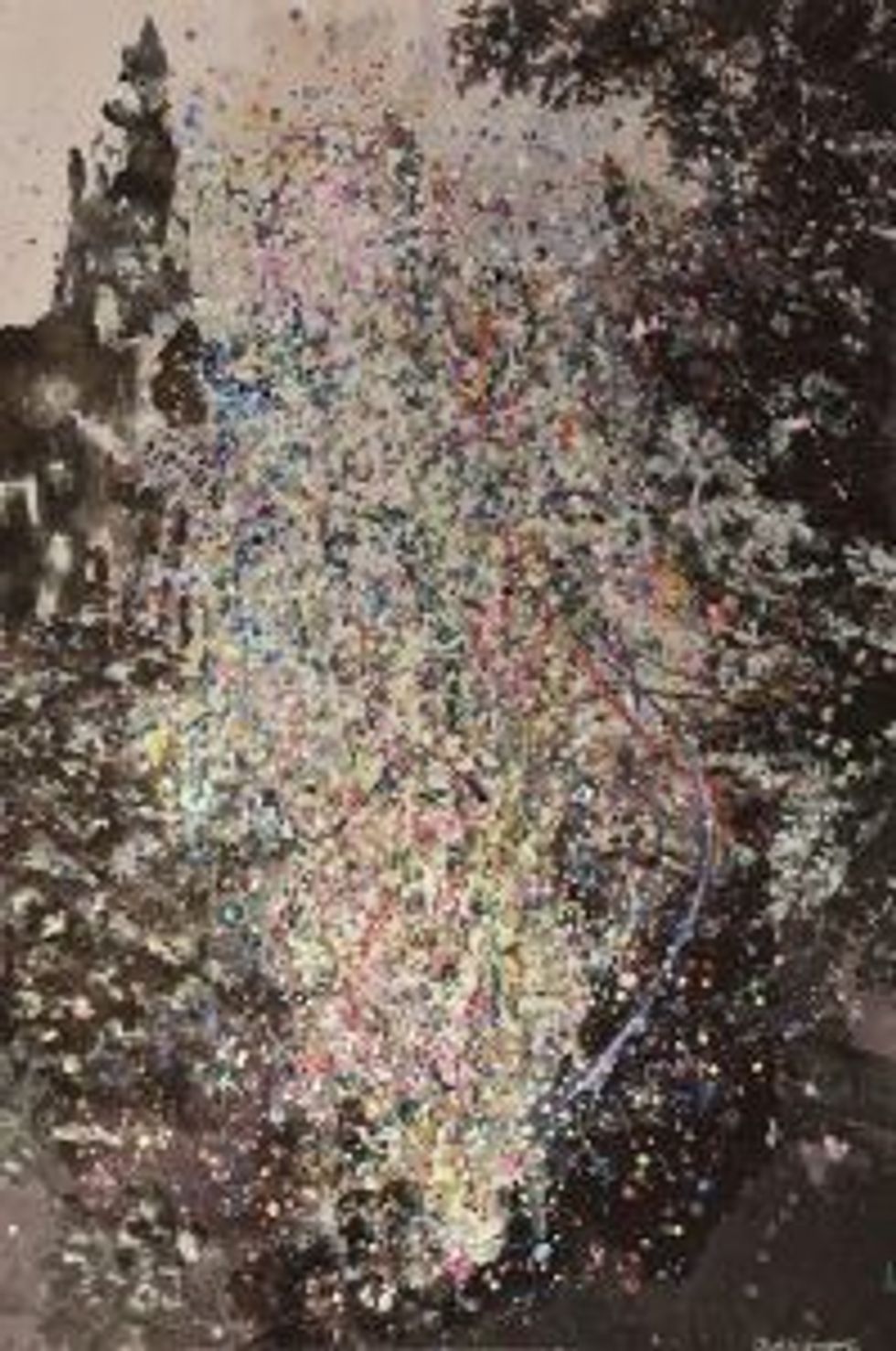A Love Letter to My Home is a multimedia art exhibition from Akshita Gandhi which examines ideas of home and identity. It combines traditional photography, mixed media paintings and audio works. The exhibition is a love letter to Mumbai and Udaipur, where the images were taken. “It’s symbolic, because India completes 75 years of independence after it was colonised by the British…exploring the concepts of home and belonging has been a journey that I’ve been questioning for many years,” she said.
Gandhi, 34, was born and grew up in Mumbai, where she now works. For her, choosing the city for the subject of her exhibition was a further extension of her own experiences living there. “I lived here, but I studied in an American school…it was like waking up and going into a different culture and a different system, then coming home to a very traditional patriarchal society,” she said.

Gandhi’s experience of moving away for college and then briefly abroad also helped inspire the musical part of her exhibition. Starting with traditional Indian prayers, the music then transforms into a more contemporary style, mirroring India’s increasing modernisation.
As well as her music and mixed-media images, she’s also preparing a special intallation for the London leg of the exhibition’s tour. Gandhi is working on a piece incorporating a blue tarpaulin, a symbol of both rich and poor India, showing the often unexpected links between the two. “The blue tarp is so symbolic in Bombay visually, because it’s used by low income houses to cover their roofs and by rich residential buildings to cover theirs during the monsoon,” she said.
The recent racial politics and its resulting violence has seen groups such as Muslims targeted by hardline nationalists. For Gandhi, it has unnerving parallels to the post-independence violence during and after the late 1940s.
“I’m a Hindu and I’m married to a Muslim, so it’s very real for me…it’s something that’s close to home,” she said. However, she also hopes that this exhibition will help unite people and show a different side to India.
For Gandhi, while this economic progress has been a good sign, more recent developments show to her that the progress isn’t all good. “Losing freedom of speech or not being able to question the establishment are things which irks you as an artist,” she said.
With the post-independence undercurrent in the exhibition, London was an obvious hosting choice for Gandhi. As the former seat of the British Empire and by extension, where India was ruled from, her work gains additional significance. “We were colonised by the British, so much of our post-colonial identity, so much of our architecture and the work I have captured, is influenced by the architecture that was left behind by the British,” she said.
As well as encouraging people from all backgrounds to see the exhibition, Gandhi wants to use it to improve female representation in Indian art. “I definitely and very strongly believe that we need a lot more female artists and female photographers, and they definitely need to be represented, and they definitely need to be shown,” she said.
The exhibition is on at the Nehru Centre in Mayfair from late May (23) and runs for four days before heading on a world tour






